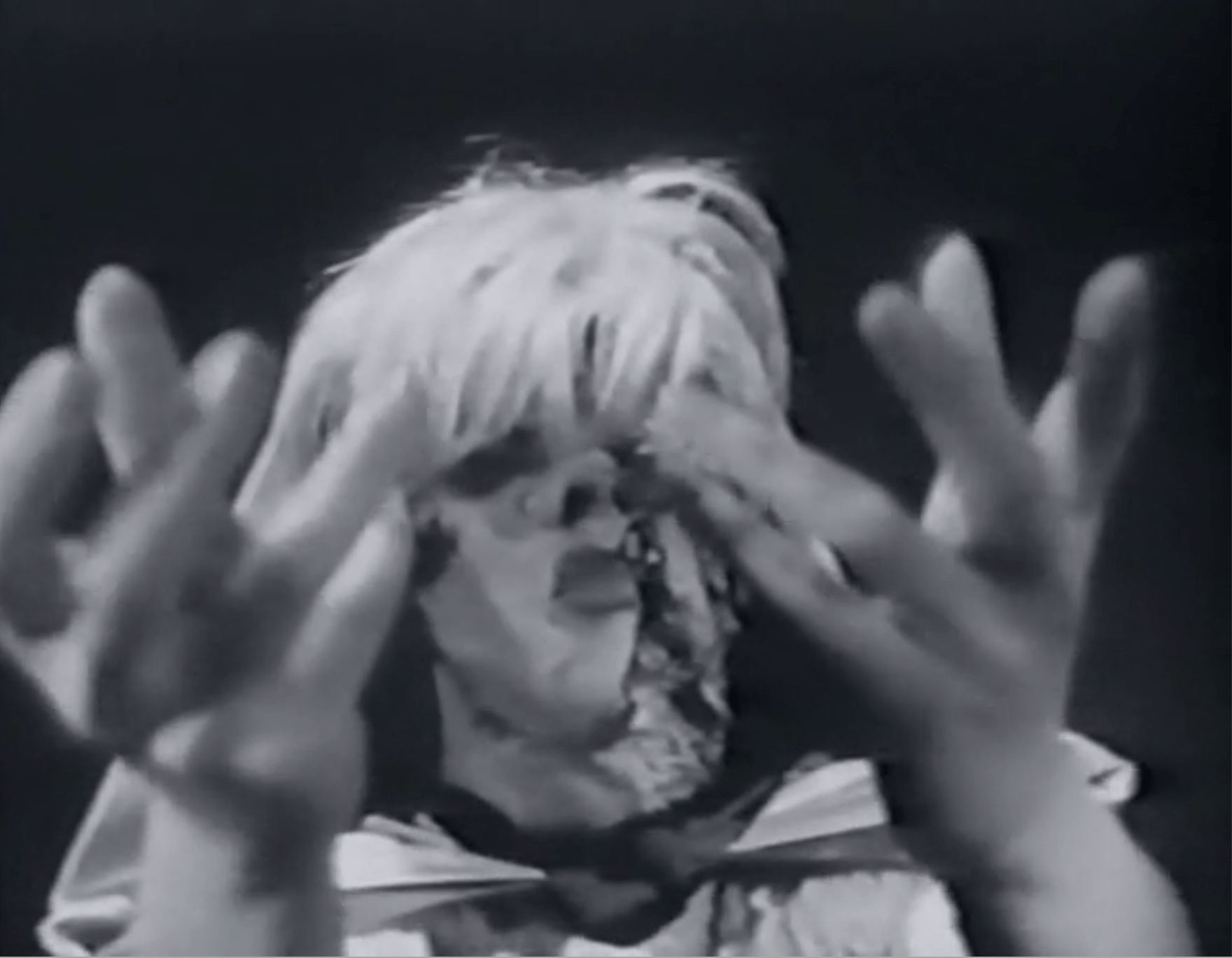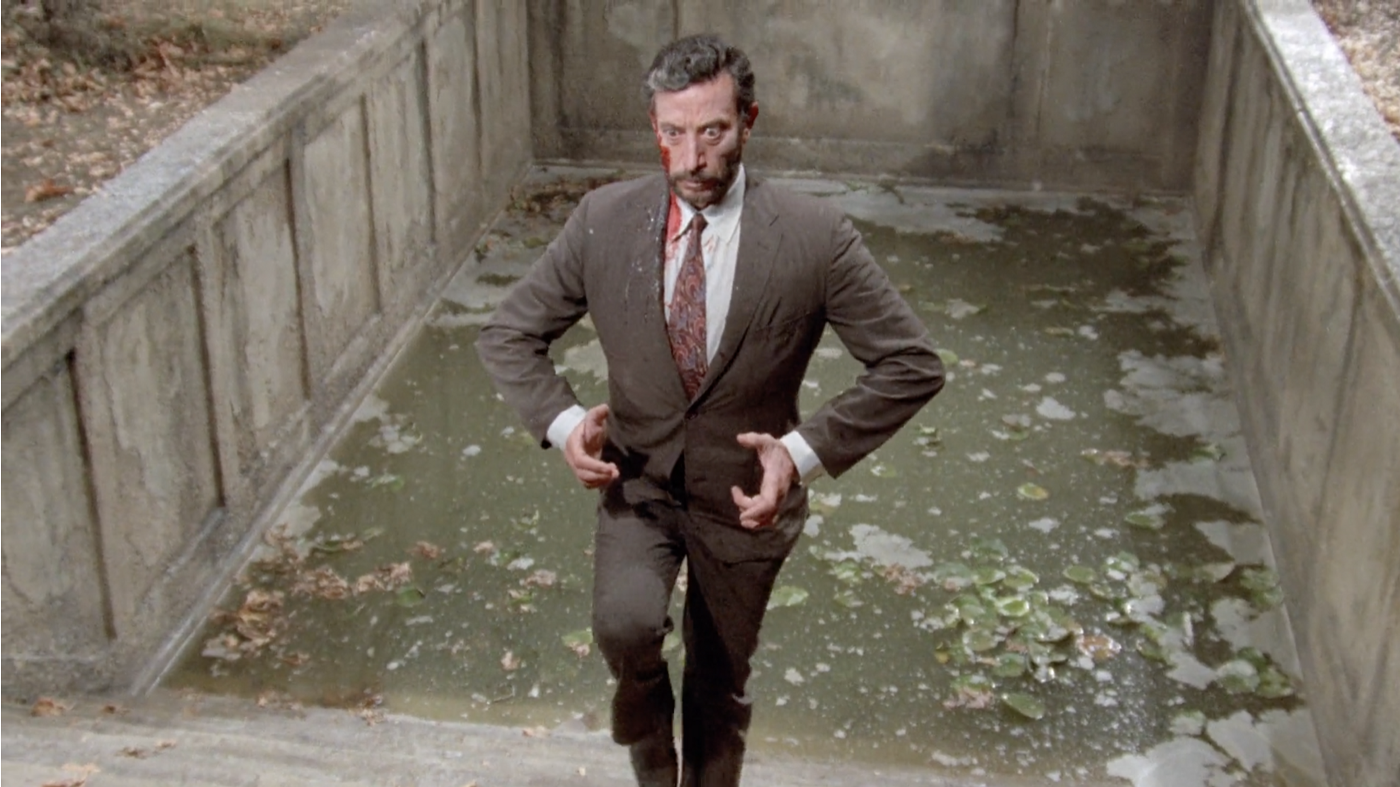
In 1968 Peter Brook made a documentary about the movement against Britain’s involvement in the Vietnam War. The film has that loose avant-garde style of the 60s where montages jump and jumble into staccato rapid-fire outbursts of images. There is news footage, scripted footage, spontaneous conversations, campy musical numbers and still photographs all brought together in a playful, satire of England’s relationship to the war in Vietnam.
Whether playful humor is an appropriate way to approach such a subject is difficult to evaluate. Every joke, every parody has its own unique relationship to its subject. Each has to be evaluated individually but as a whole Brook’s film is at the very least questionable.
The issue is further complicated by what seems to be the mixing of satire with genuinely sincere messages. It becomes difficult to discern whether the director is promoting or parodying the information he is presenting which leaves the viewer wondering if Brooks is a nihilistic cynic who believes all discourse is foolish. I doubt that this is the case but the movie goes a long way in supporting this conclusion.
There is footage of what seems like a spontaneous and extended conversation with Stokely Carmichael. It is sandwiched and even interrupted by humorous satire, throwing into question if Carmichael’s insightful and biting critique of white power and imperialism is being presented as a joke, or as a viable point of view. After the interview, there is news footage of one of the Buddhist monks setting himself on fire. I’m not sure how exactly one might present such dire and horrifying footage in any movie but sandwiching in between jokes is not acceptable. The pain and drama of such an act necessitate sober respect. Even if you disagree with the position the monk represents the footage demands a serious presentation.

The way Brooks presents his imagery is only one element that needs to be considered. The whole premise and/or intention of the film needs to be questioned. The focus of the film seems to be the youth of England or more specifically the young, attractive, white, middle-class, citizens ages 17 to 25 who are protesting the war.
The film is not about the Vietnam War itself. There is very little footage from the actual war. Instead, the focus is on England’s experience of the war. The choice to focus on the oppressor, or the perpetrator is problematic but has its value. We often prioritize the experience of the victim over the experience of the perpetrator. Films about the Holocaust interview concentration camp survivors and rarely interview nazi soldiers or administrators. We feel obligated to silence the oppressor’s voice because it is an unjust voice. However who will have the most insight into how and why the Holocaust happened? If you are looking to understand what happened and why it is the oppressor who has that information. An SS officer knows far more about concentration camps than a survivor.
However, the oppressor’s experience is limited. They know little about the lived experience of their victims. There is a concrete, visceral reality that can only be conveyed by the victims. Even if such a reality can never fully be understood by an audience with no first-hand experience with the event, the experience is crucial to gain any insight.
All experiences are valid and valuable whether they come from the oppressor or the oppressed. The difficulty arises in how to present them. who is doing the presenting and to whom. In a documentary about Britain’s involvement in the Vietnam War, Brook chooses not to interview any Vietnamese.
For the Vietnamese the war in question was not called The Vietnam War it was called and is still called The American War. Labeling it The American War of course shifts the point of view or point of reference. Calling it The American War may prioritize a different set of events and emphasize who is to blame but it can also draw attention away from the victim. There is no solution to how to accurately label the war because there is no single experience of the war.
There is no united, master narrative for the Vietnam War, nor for any subject. A singular, definitive truth about any event is simply not possible. History is a tangle of competing stories and experiences. The narrative that is constructed is inevitably more a reflection of the motivations of the storyteller than a representation of history.
What you title a war has profound consequences for how it is depicted and how it is perceived. The same is true for titling a movie or documentary. Peter Brook’s Documentary is called Tell Me Lies. It seems likely that his choice of title is meant as a sarcastic directive aimed at the politicians and perhaps the mainstream media as well. He is expressing anger and a sense of betrayal. His leaders are deceiving him about the war, but instead of challenging that deception by exposing what is actually going on, he digs deeper into the culture and mindset of the liars. The liars may well be an important subject to address but at some point, the lies become a distraction from the real tragedy.
The war is not Vietnam’s nor is it America’s or the British, French or Chinese, but each of these countries as well as the rest of the world will position the endless pool of narratives that have resulted from the war and construct their own self-serving story.
Imagine if the black granite walls of the Vietnam Wall Memorial had a companion set of walls right across from them listing the names of the Vietnamese who died. 58,220 American soldiers died in the war. The Vietnamese lost 3,300,000 men, women, and children. The Vietnamese wall would dwarf the American wall hundreds of times over. How would that change the way the memorial was perceived? What if instead of two separate walls all the names of the Americans and the Vietnamese were mixed together on the same wall?

One problem would be that there are no official documents that record all of the names of the Vietnamese dead. The victims were a disempowered, third-world mass of faceless victims whose names, voices, and experiences have been supplanted by their oppressors. The millions of Vietnamese families who perished under blankets of napalm were not members of a counted class. They had no social security numbers no tax forms. Their perceived insignificance is what enabled American soldiers to murder them and for American and British histories to then erase those murders by discounting the victim’s experiences.
In the second half of the film, there is a noir-styled monologue spoken as the narrator wanders the streets of Saigon, or what is more likely a set made to look like Saigon. He talks about what it’s like for soldiers when they are on R and R in Vietnam, “Now these are boys who haven’t drunk before, but they suddenly want a drink. They want the company of people they can talk to and the alternatives open to them are very few in Saigon. ‘Saigon is a brothel.’ Senator Fulbright said this but without quite understanding how true it was. Saigon is a city of brothels, of pimps, of stooges, of pickpockets, of camp followers. taxi drivers, shopkeepers, everybody is making money out of you because they know you are there for a short time… This boy, [meaning an American soldier] this 19-year-old, finds himself in this town hated, He’s sensitive he knows he’s hated. Nobody has smiled at him. Nobody is making friends with him.”
That hypothetical 19 year old might be worthy of our sympathy but as a whole the passage is perverse. “boy” or not that soldier is there to murder Vietnamese people using machine guns, and bombs and we are directed to consider how he feels when his victims are not friendly toward him. It is not that his pain and trauma do not deserve recognition but centering his experience while dismissing his victims as pimps and stooges is an act of oppression in and of itself.
Perhaps Brook might argue that the monologues, arguments, and discussions presented in his film are not to be taken at face value. They are in post-modern quotation marks that offset them as text to be examined, but if this is the case he gives the audience virtually no way to evaluate what is sincere and what is satire.
If the film is seen as a piece of agitprop it is conceivable that some of the film’s myopia is a function of the film’s trying to appeal to a myopic audience. If you make a film in hopes that it will spur the audience to action then you may need to meet them where they are, but there is a limit. At some point, you are only continuing to hide the truth of what is going on and distracting the first world by encouraging them to focus on themselves rather than on the consequences of their actions.

If this interested you, you might also be interested in this -
www.filmofileshideout.com/archives/whose-side-of-the-camera-are-you-on



